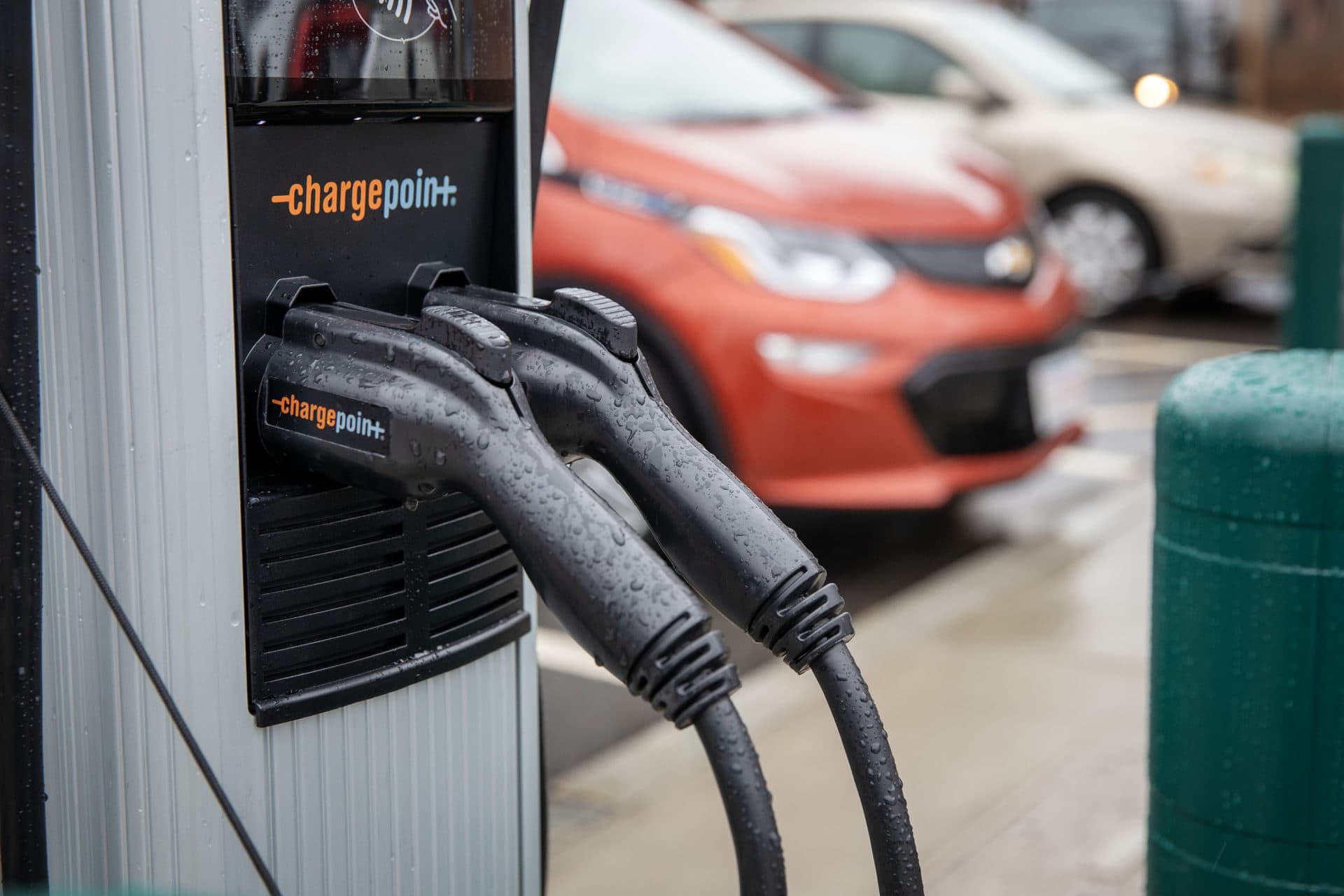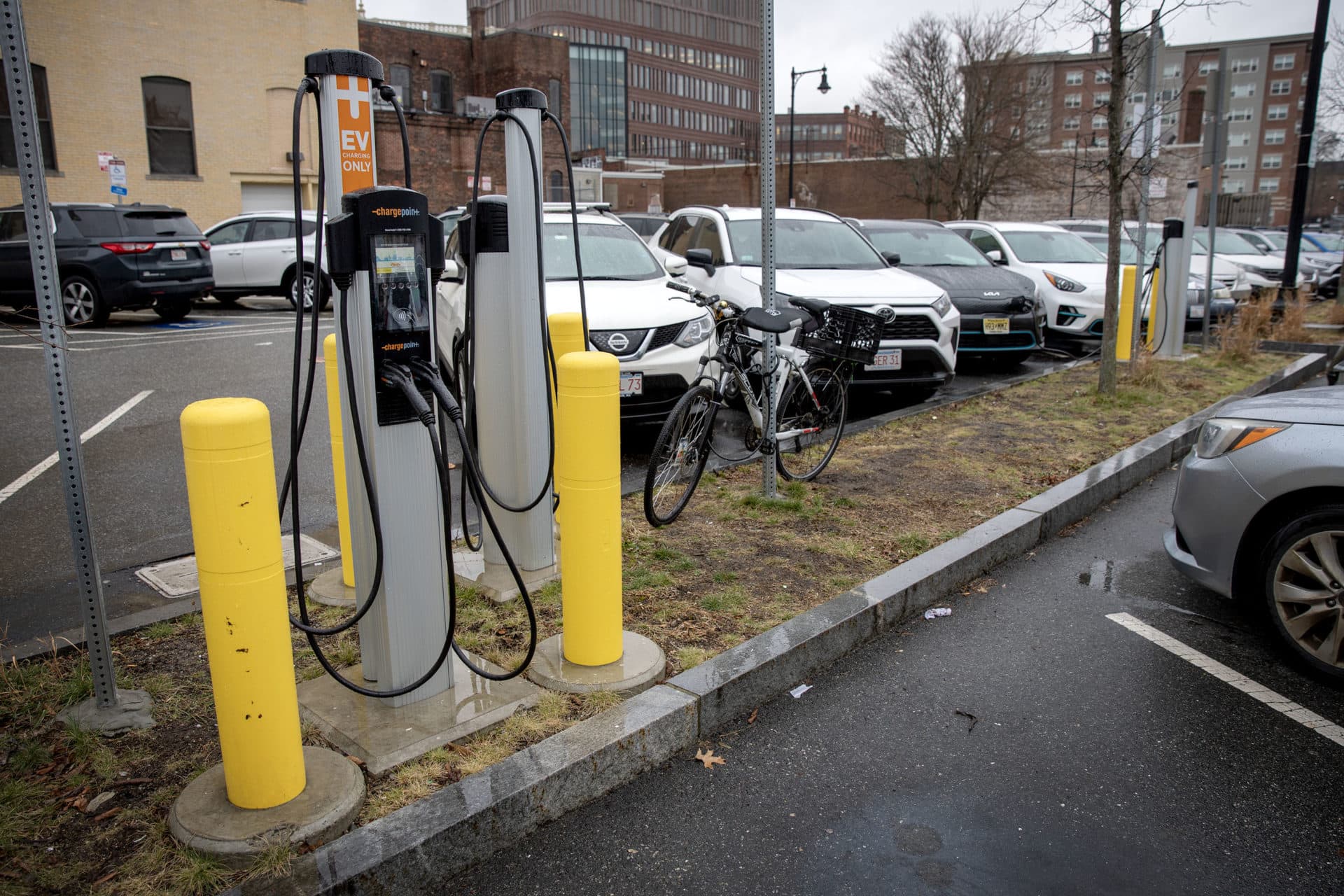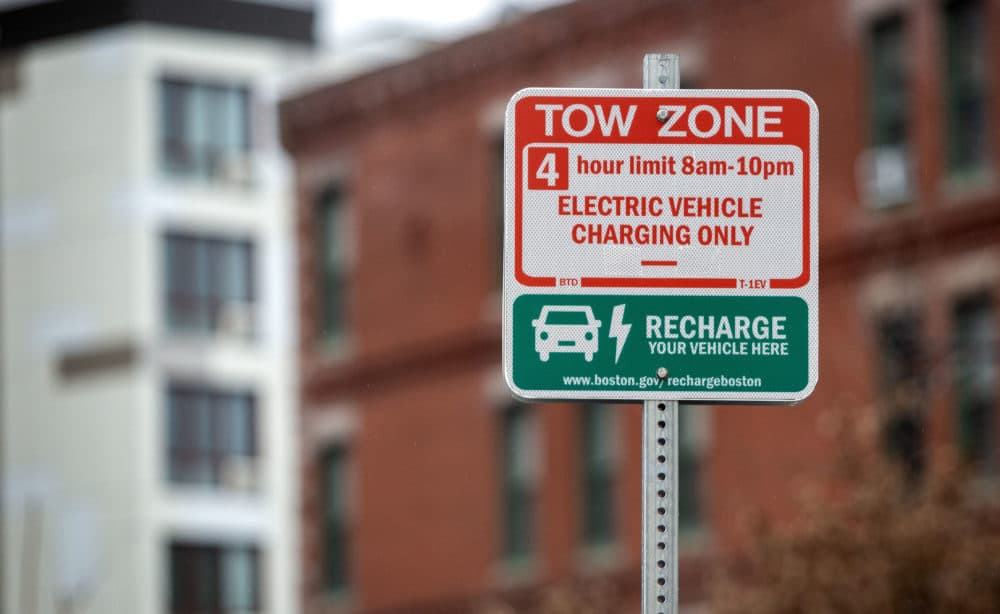The city hasn’t created a policy for encouraging existing buildings to add chargers. A law called “Right to Charge” ensures that condos cannot forbid owners to install chargers. The roadmap says Boston is considering expanding the rule to rental properties, but it hasn’t proposed any new legislation yet.
Currently, the city has installed 58 Level 2 chargers distributed across 13 of its public parking lots, with plans to develop six more locations in 2023. All of them are located in the neighborhoods where the BU analysis found fewer chargers: Roxbury, Brighton, Allston, Jamaica Plain, East Boston, Roslindale, Dorchester, South Boston, Hyde Park, West Roxbury and Mattapan. The city also plans to install fast chargers in four municipal parking lots in Allston, Roslindale, Hyde Park and Dorchester by 2023.
“When we think about placement, one of the reasons our municipal lots are such an attractive location is that they are very well distributed throughout the city, especially in some of our lower income neighborhoods,” Franklin-Hodge said. “So it gives us an opportunity to kind of get a head start on placing chargers in places that might be late in coming for more of the private investment.”
Still slow to add faster chargers

It’s not just where the chargers go, it’s how fast these power sources get a driver back on the road. Currently the city is lagging behind its fast charging goal, with only 42 fast chargers installed.
Fast chargers are a key part of encouraging EV adoption. They help address “range anxiety” — fears that a car will run out of juice before reaching another charging option — boosting confidence for people to transition to electric cars. It’s particularly important for those who live in rented properties, those who need to travel long distances or more frequent drivers such as ride-share operators.
Franklin-Hodge said he expects private companies will start installing fast chargers in places that would work “almost like gas stations.”
He and Oliver Sellers-Garcia, Boston’s Green New Deal secretary, pointed out that, while most of the federal Inflation Reduction Act (IRA) funding for charging infrastructure is being directed to fast charging along highways, they expect there will also be funding for fast charging in urban areas.
More than EV charging needed for equity

Not everyone is convinced the city’s plan is adequate.
“Having the city say they're going to fill in the gaps sounds great on paper, but what does that actually look like in practice?” asked Owen, from ACE. “It is not clear to me that this will benefit Roxbury residents unless and until some of these baseline things that impact who has access to electric vehicles in the first place are changed.”
Owen said many people can’t afford to buy even used electric cars, and the state and federal rebates don’t bring the cost down enough. Most people who have taken advantage of the rebates for purchasing an EV through the state’s MORE-EV program live in the wealthier zip codes.
While the adoption of EVs can reduce air pollution in communities burdened with environmental justice issues, neighborhood advocates are also concerned about gentrification.
“[The] other thing that we hear from folks in the community is that often new charging stations or updates in a park or a playground or a fancier T station even is going to mean that property values will increase, that whiter and wealthier folks will move in and that the community will be displaced,” Owen said.
Transportation counts for about a third of emissions in Boston, with cars and SUVs representing 65% of those emissions.
Offering EV charging infrastructure is much cheaper than decarbonizing a house, according to MIT’s Hsu.
“It would be extremely effective for energy savings and greenhouse gas emissions reductions to have for everyone to have access to an electric vehicle charger wherever they live, regardless of whether or not they own their home or if they are a renter or they live in a multi-family building,” he said.
What’s next?

More funding for EV infrastructure is coming. On Dec. 30, the Massachusetts Department of Public Utilities approved a $395 million plan to install tens of thousands of new chargers, with more than half allocated to public and workplace charging. This funding eclipses the other grants, according to Anna Vanderspek, electric vehicle program director at Green Energy Consumers Alliance, an organization that worked closely with DPU reviewing the plan.
“This will allow Boston to build out more charging, but only if people within Boston and institutions within Boston step up and apply for the funds,” Vanderspek said. “And the faster you do that, the better, because we know there's a lot of demand for this.”
She said the city could encourage Eversource customers, like landlords, to apply.
“I think you're going to see a sea change really happening in the next 24 months,” said Kathleen Connors, president of Voltrek, a charger installation company that has worked with the city. “Everybody was waiting for a very long time on this next phase of utility money.”
That change can’t come fast enough for residents like Mushero. In all, she left her car charging for over three hours on Thomas Street to nearly fill her battery. The lack of other options was typical for Boston’s more residential areas.
“That is very consistent with structural inequities that exist already and it's just reflecting that and the prioritization of places that have wealth get more resources poured into them,” she said.